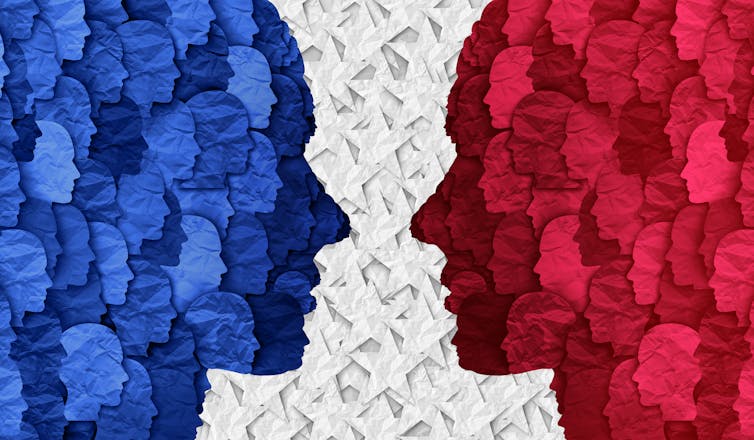Lamer and Team Read the Room for Angry Crowd Bias

Lamer and Team Read the Room for Angry Crowd Bias
Sarah Lamer’s research into the psychology of social biases found favor with an international audience this year, earning her a spot on the Association for Psychological Science (APS) roster of Rising Stars for 2024.
The APS is the leading international organization dedicated to advancing scientific psychology across disciplinary and geographic borders. Lamer, assistant professor in the UT Department of Psychology and Neuroscience, is proud to be recognized among the top early-career colleagues in her field.
“This acknowledges the importance and rigor of my scientific work as well as the intensive mentorship model I take in my lab,” said Lamer. She works alongside her graduate students Darla Bonagura and Gillian Preston in her Social Perception and Cognition (SPĀC) lab.
“I work closely with my skilled team of graduate and undergraduate mentees to explore important and timely questions about why bias exists, where it originates, and why it is so fluently perpetuated,” she said. “This accolade recognizes the important work that we do as we discover answers to these critical questions.”
One of her research projects, “The Angry Crowd Bias: Social, Cognitive, and Perceptual Mechanisms,” is supported by a National Science Foundation grant that enables her to design, analyze, and conduct studies; mentor graduate students through the research process; share their work at professional conferences; and conduct workshops to share a love of science with students in the local Knoxville community.
The angry crowd bias is a psychological phenomenon people can experience when first exposed to faces that are hard to see or that have subtle expressions—notably among a “many faces in a crowd” situation. People can report that these faces look threatening, even when they are not.
“We know from a bulk of research that people are able to detect average information about a crowd with some accuracy,” said Lamer. “But perception is more complex than that. Accuracy and bias always work together in human perception.”
Lamer and her team hypothesized that this complex mix causes a tendency to perceive an unfamiliar crowd’s mood to be potentially dangerous.
“We focused on anger bias since crowds can pose a stronger threat to safety than an individual,” she said. “If a crowd is angry at you, you are at much higher risk than if an individual is angry at you. In other words, it is functional to be wary of a crowd.”
The team uses state-of-the-art methods and statistical tools to examine a viewer’s visual attention to faces—eye-tracking data, signal-detection methods, and drift-diffusion modeling—to track what people focus on while making emotional judgments. Then they assess what is accurate and what leads to bias.
“The approach makes it possible to track visual patterns—for example, which faces people look at first in a crowd, how long they look at each face, and whether they ignore anyone,” said Lamer. “All of which are likely to be affected by the race and gender of the faces themselves.”
This work is timely in relation to widespread protests in the US over the past several years and the divergent interpretations these crowds have received across public perception—potentially due in part to the racial and gender makeup of these assemblies.
“With this social backdrop in mind—and understanding that, according to event-forecasting models, social unrest is likely to increase in the future—this research was designed to identify the people whom negative crowd biases are most likely to affect, where these biased judgments come from, and how malleable they might be,” said Lamer. “We plan to complete data analysis on our current study by the end of the semester.”
